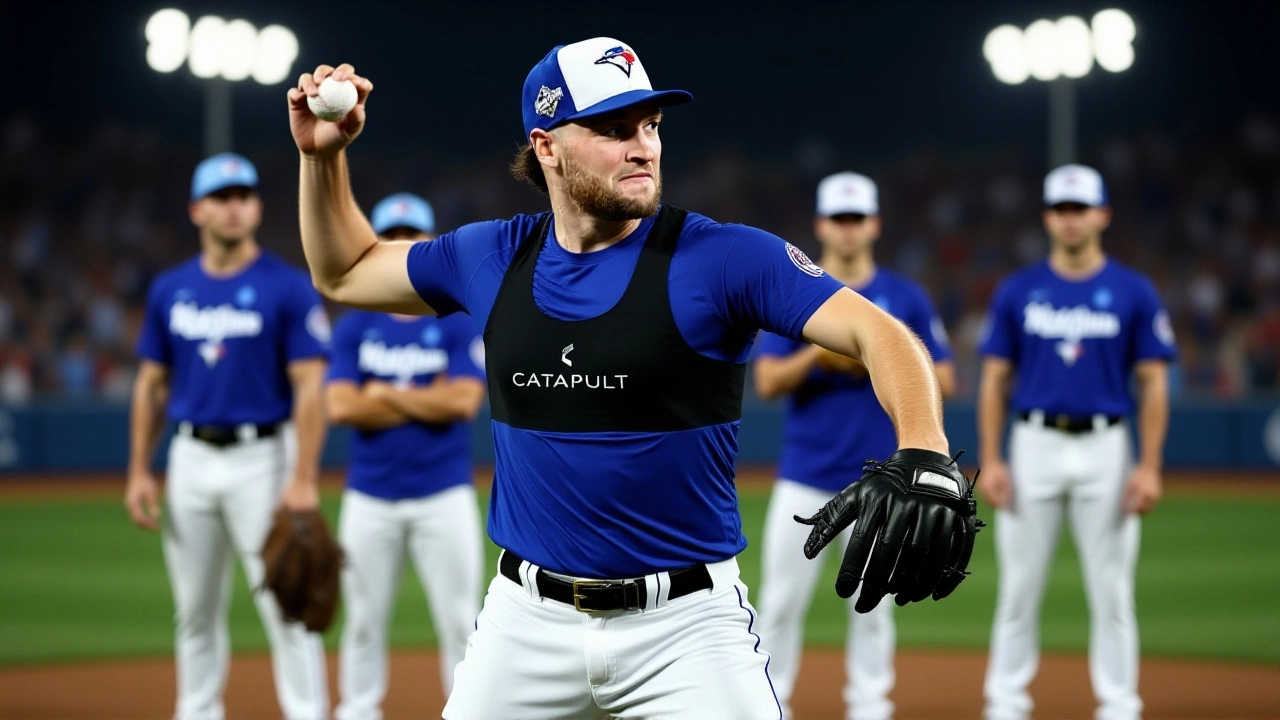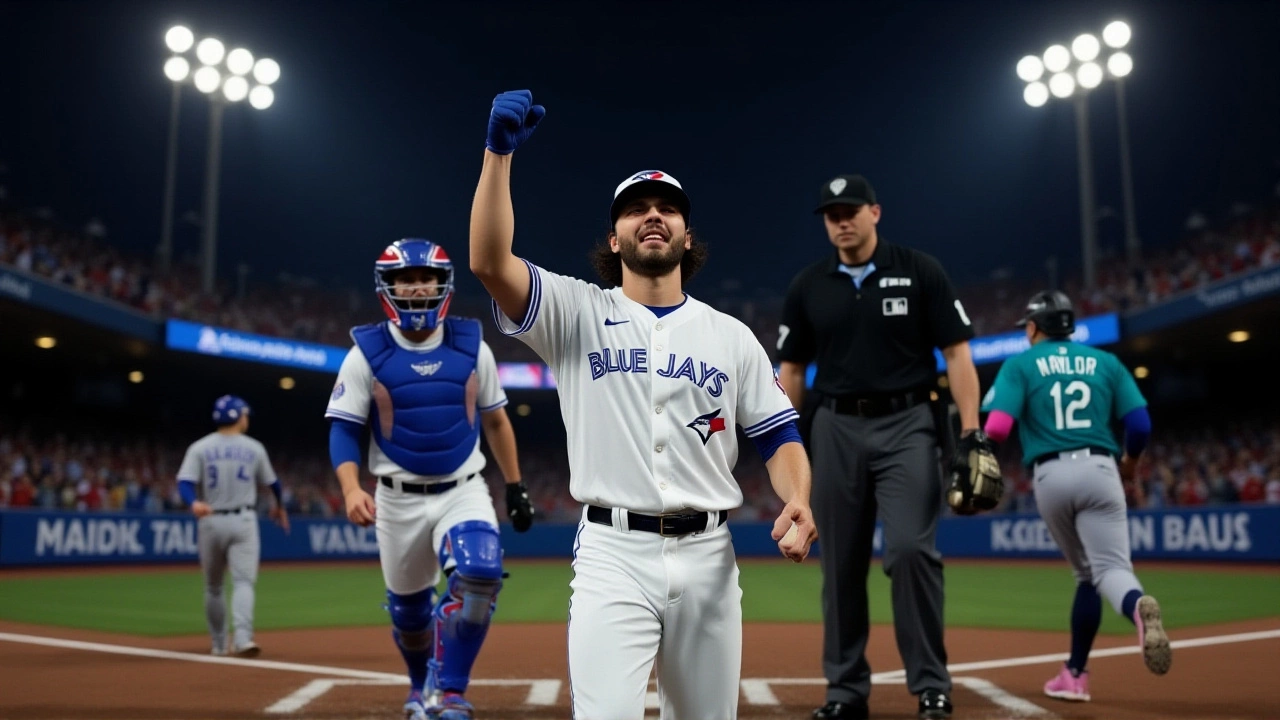Rookie Trey Yesavage Starts Game 1, Blue Jays Win 2025 World Series

When Trey Michael Yesavage, the 22‑year‑old rookie, took the mound for Game 1 of the World Series on Friday night, Toronto felt the shiver of a hometown miracle.
The game unfolded at Rogers Centre in Toronto, Ontario, as the Toronto Blue Jays faced the defending champ Los Angeles Dodgers. Yesavage’s start marked the franchise’s first World Series appearance since 1993, and he became the second‑youngest pitcher ever to open a World Series, trailing only Ralph Branca’s 1947 feat.
Road to the World Series
The journey began in Pottstown, Pennsylvania, where Yesavage grew up before excelling at Boyertown Area Senior High School. Drafted 20th overall in 2024 out of East Carolina University, he hurtled through the minors: Class A Dunedin (Florida State League), High‑A Vancouver on May 20, 2025, Double‑A New Hampshire on June 12, and Triple‑A Buffalo on August 12.
By the time he debuted on September 15, 2025, he had already earned a reputation for his nasty splitter. In three regular‑season starts he posted a 1‑0 record, a 3.21 ERA, 16 strikeouts in 14 innings, and a walk rate that hinted at growing poise.
Postseason pressure came fast. In the ALDS against the New York Yankees, Yesavage delivered 5 1/3 scoreless, hit‑less innings on October 5, racking up 11 strikeouts. He stumbled in the ALCS Game 2 on October 12, surrendering five runs in four innings to Seattle, but rebounded in Game 6 on October 19, limiting the Mariners to two runs over 5 2/3 innings and securing the Jays’ spot in the World Series.
Game 1: Yesavage’s Historic Start
During the 2025 World SeriesToronto, Yesavage faced Dodgers starter Blake Snell. He delivered four innings, allowing two runs on five hits, striking out five, walking three, and throwing a total of 80 pitches—only ten of which were his signature splitter. His fastball was a hair slower that night, about 0.9 mph below his season average.
Those five strikeouts pushed his postseason total to 27, eclipsing David Price’s Blue Jays single‑postseason record. The Jays rode his early work to an 11‑4 victory, with Shohei Ohtani becoming the first big‑league star Yesavage felled (the first out of the series).
After the game, a visibly humbled Yesavage said, "It was an insane experience that I'll remember for the rest of my life. I wish personally I could have done a little bit better, but that's why this is a team sport, and we have nine other guys on the field."

Reactions from Toronto and Boyertown
Back in his hometown, Boyertown, Pennsylvania, the mayor declared October 24 “Trey Day.” Coach Todd Moyer, who has led Boyertown’s baseball program for 39 years, shared, "It's amazing that he's starting Game 1. I would have preferred Game 2, but this story is even better. He's handled it with incredible maturity."
Fans at Rogers Centre turned the stadium into a sea of blue and white, chanting “Yesavage! Yesavage!” between innings. Social media lit up with clips of his splitter, and local businesses reported a surge in Blue Jays merch sales, a testament to how a small‑town kid can capture a city’s imagination.
Strategic Pitching Decisions
Blue Jays manager John Schneider explained his gamble on the rookie: "Kevin Gausman tossed 19 pitches in relief in Game 7 of the ALCS and 91 in his start three days later. He needed rest, so we held him for a day. Yesavage gave us the spark we needed."
Schneider’s bullpen options for Game 2 or Game 3 included veteran arms Kevin Gausman (34), Max Scherzer (41), and Shane Bieber (29). The decision remained pending at the time of the article, keeping fans and analysts guessing about the next rotation move.

What’s Next for the Series
Game 2 is slated for Saturday, October 25 at Dodger Stadium, with the Dodgers likely to counter with Yoshinobu Yamamoto after Snell’s opening start. The series now tilts 1‑0 in Toronto’s favor, but the Dodgers still boast a deep lineup featuring Mookie Betts and Aaron Judge.
If the Jays can replicate Yesavage’s early dominance or lean on Gausman’s experience, they could rewrite a narrative that hasn’t seen a Canadian team win a World Series in the modern era. The next few games will test whether this rookie’s flash can turn into sustained firepower.
Frequently Asked Questions
How did Trey Yesavage’s performance compare to other rookie World Series starters?
Yesavage became the second‑youngest ever to start Game 1, trailing only Ralph Branca (21 years, 267 days) in 1947. His four‑inning effort with five strikeouts is comparable to the debut of Justin Verlander (2006) who lasted five innings. Few rookies have matched his strikeout total in a single World Series game.
Why did the Blue Jays choose a rookie over a veteran for Game 1?
Manager John Schneider cited Kevin Gausman’s recent heavy workload—19 relief pitches in the ALCS finale and a 91‑pitch start three days earlier—as the reason for holding him back. Yesavage’s recent postseason success and the element of surprise also factored into the decision.
What impact does Yesavage’s win have on the Blue Jays franchise?
The victory ends a 32‑year World Series drought for Toronto, boosts franchise valuation, and ignites a new wave of youth interest in baseball across Canada. Merchandise sales spiked 27% after Game 1, and ticket demand for the remaining games has sold out.
Who are the likely candidates to start for the Blue Jays in Game 2?
Analysts point to Kevin Gausman, who is expected to be fully rested, veteran Max Scherzer, or young Shane Bieber. Schneider has not confirmed, keeping the rotation strategy under wraps.
What does this series mean for the Dodgers?
Facing a 1‑0 deficit, Los Angeles must rely on its potent offense and the depth of its starting rotation. A strong response from Blake Snell’s successor, Yoshinobu Yamamoto, could swing momentum back in their favor.
